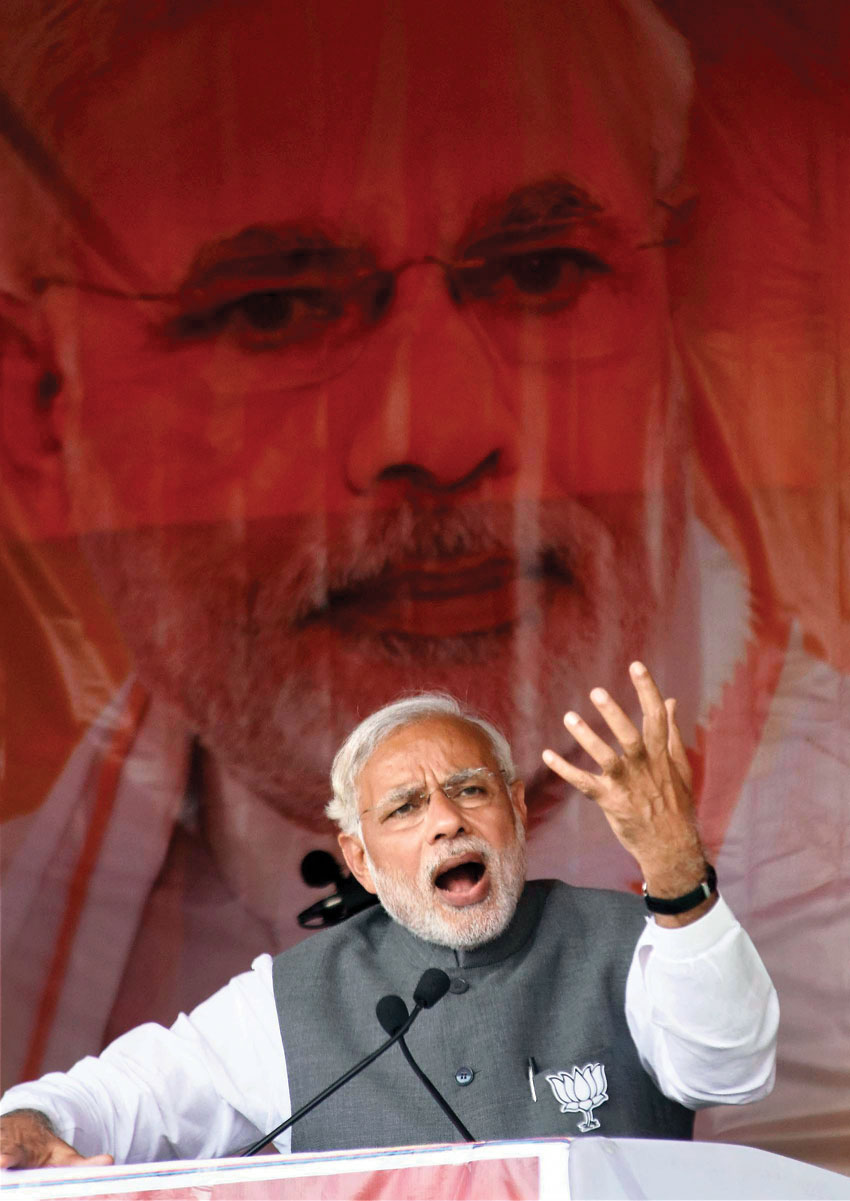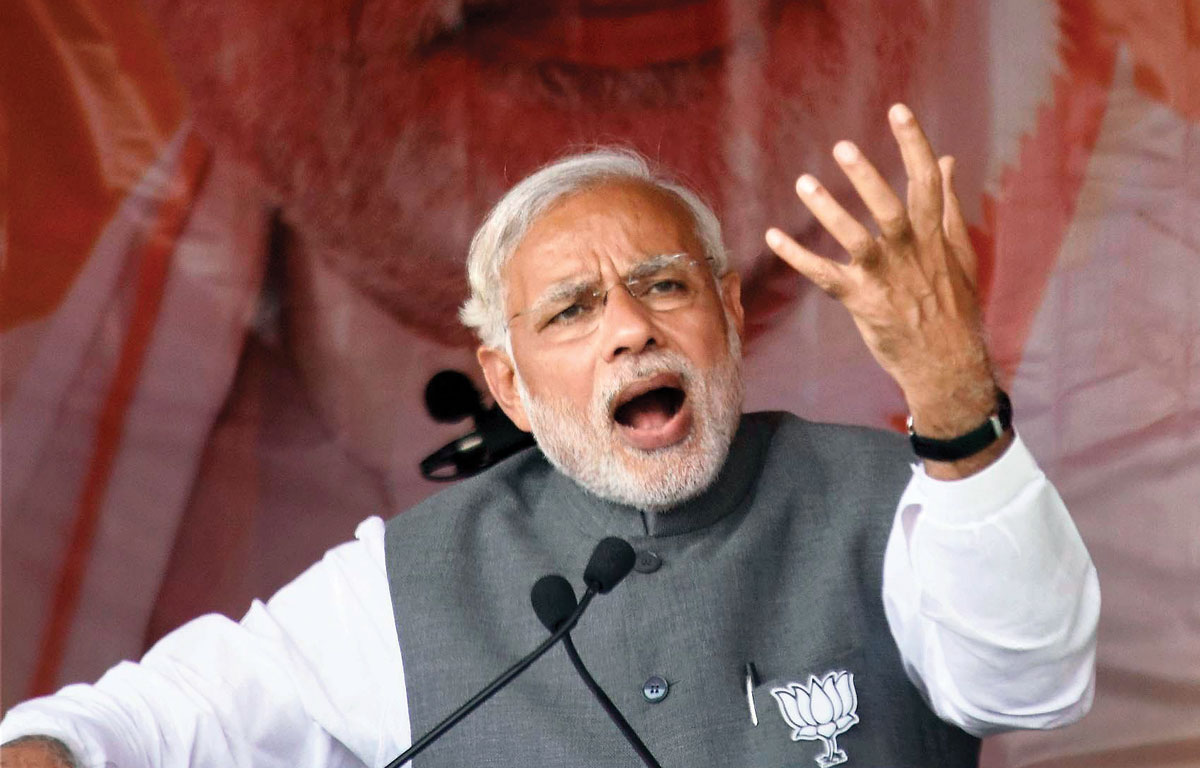CHASING BLACK MONEY

Recovering black money has always been a central past time of Indians and over the past couple of weeks Indians have been pre-occupied with comparing the recovery of about Rs. 25 billion ($385 million) of undisclosed wealth with the claims of $1 trillion sent overseas in past fifty years, made by Indian Prime Minister @NarendraModi, writes Priyanka Bhardwaj.
When in January 2014 at a rally Modi attempted to cash on this popular sentiment for a political victory by declaring that, “If we bring back those rupees then each and every poor man in India will get Rs. 1.5 million to Rs. 2 million for free,” Bharatiya Janta Party’s election strategist Amit Shah rubbished it as nothing more than a political “jumla” or literation.
Now it appears that the his government is keen to deliver on this war cry as it came up with a three month compliance window that ended September 30.
The ruling allowed citizens to declare any illegal money in foreign banks like LGT Bank of Liechtenstein and HSBC Bank, Geneva, failing which evaders would attract heavy penalties.
Finance Minister Arun Jaitley says that the 638 persons who availed the one-time compliance window by declaring their Rs. 37.7 billion can afford to “sleep well” while holders of unaccounted overseas money would face harsh prosecution such as liability to pay 30% tax and a penalty of 90% and also a sentence of up to 10 years once the Government of India receives information about their wealth under automatic exchange of information.
The Indian government has sought details about numerous individuals and companies from Switzerland as part of its crackdown against suspected black money stashed in Swiss banks under its bilateral treaty for administrative assistance and exchange of information with the Alpine nation.
Only a dozen such names have been disclosed so far and many other requests are pending with the Swiss authorities who conduct their own due diligence before initiating the process of sharing the information.
Sources in the government state that many countries that have agreed to enable India in this fight are USA, Germany, France, Switzerland, Singapore, Mauritius and the British Virgin Islands who would provide information and data flow on assets held by Indians.
The government’s intent comes to the surface through an ambitious “Income Tax Business Application-Permanent Account Number” that is expected to be adopted in a month by the Finance Ministry and will enable tracking of transactional history of a person or entity across the country as also allow the taxman to capture “death, liquidation, dissolution, de-merger, merger, acquisition, fake PAN or amalgamation of PAN” of an assesse in a specific or general case.
Contrarians however feel that lack of clarity on immunity, questions of confidentiality, fear of future harassment and lack of time are some points of the three month compliance that played a spoiler in terms of recoveries.
The chief opposition party, the Congress that has repeatedly countered attacks from the ruling BJP that the Gandhi dynasty are holders of black money in Swiss bank accounts, has accused the BJP of presiding over the illegal routing of Rs. 60 billion of black money to foreign shores ever since it has come to power.
![]()
In recent times, the norm has been to bring in the illegal money into the country by way of business or participatory notes and not allow it to lie idle in tax havens that promise safety and confidentiality but no interest income.
As matters stand, national and private sector banks are in the news for a forex scam involving Rs. 61.72 billion worth of remittances from 59 bank accounts to some select firms in Hong Kong for purchasing non-existent imports.
If the story of domestic black money is considered then the bulk of it is still within India is what Jaitley rues.
Therefore prevention of accumulation of black money is possible by installing tax compliance and income disclosure via a regulatory regime.
Black money is created due to high incidence of tax and low level of enforcement in the tax domain.
In the past National Institute of Public Finance and Policy (NIPFP), National Council of Applied Economic Research (NCAER) and National Institute of Financial Management (NIFM) have conducted thorough studies on black money, recommendations of which have not been acted upon by the government.
Going by the NIFM study the sectors of real estate, mining, paan masala, gutka and tobacco industry, bullion and commodity markets, film industry, educational institutes, professionals, securities market and manufacturing are the ones with high incidence of unaccounted income.
Therefore it recommends sector and area specific steps to deal with the issue and states: “…constitution of a regulatory authority; rationalizing circle rates with market rates; rationalization of stamp duty; automated and single-window clearance; including real estate in goods and service tax; eliminating ‘percentage of completion’ method; posting records online; capacity building and use of advanced tools like data mining generation of suspicious activity reports to spot tax fraud and money laundering.”
These studies have caught the eye of Modi and he has instructed the recommendations to be thrashed further for adoption.
The buzz from corridors of policy makers is that the government is seriously considering to rationalize tax structures, tax at reasonable rates, place more money in the hands of small earners, promote the use of banking transactions and plastic money, and lower the corporate tax to 25% over the next four years and phase out exemptions in order to make India a more investment friendly destination.
Albeit the fact that the big fish may still be out of the law enforcers’ ambit yet the deterrence value of the rulings and more measures that are to follow may only be adjudged as sure steps forward.


